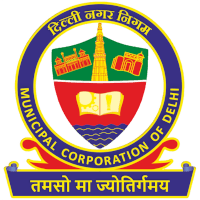About The Founders
Why Waste Wednesdays Foundation (WWWF) is a women-led Section 8 non-profit organization, established in 2021, with a mission to address pressing environmental challenges through innovative and impactful solutions. Guided by the principles of sustainability and inclusivity, WWWF works at the grassroots level to promote eco-conscious practices and empower communities, particularly women and youth, to take ownership of environmental conservation.
The foundation began as a campaign in early 2021, initiated by two senior doctors and an IIT Delhi B.Tech student, to raise awareness about waste management and reduce the use of single-use plastics. Collaborating with civic authorities, WWWF organizes awareness drives, puppet shows, workshops, and talks across Delhi, establishing a strong foundation for its future endeavors.
Among its many impactful initiatives, Project Vikalp stands out as a transformative model in the fight against single-use plastics. Through a successful Deposit Refund System (DRS), Vikalp has introduced over 1.4 lakh reusable cloth bags into circulation, replacing single-use plastic bags in markets and malls. With over 1000 stalls operating under this program, the project has set a benchmark for sustainable consumer behavior. Additionally, Vikalp promotes the use of recycled and surplus fabrics, contributing to a circular economy. Recognized as a best practice in the Ministry of Housing and Urban Affairs' (MOHUA) E-Book on 3R initiatives, Vikalp has received national and international accolades for its impact.
WWWF's success is also rooted in its collaborations with organizations like the Municipal Corporation of Delhi (MCD), New Delhi Municipal Council (NDMC), Bisleri's Bottle4Change, Karo Sambhav Pvt. Ltd., Earth Day Network, NSS, Barat Soka Gakkai and various Resident Welfare Associations (RWAs). These partnerships have supported key initiatives, including plastic and e-waste collection drives, Zero Waste models, and educational programs.
Through its innovative projects and strong alliances, WWWF continues to lead the way in addressing critical environmental challenges, fostering community empowerment, and building a more sustainable and inclusive future.

Dr. Ruby Makhija
Opthalmologist

Dr. Praveen Makhija
Pediatrician
The Problem
According to the World Bank, global waste generation is projected to soar from 2.01 billion metric tons in 2016 to a staggering 3.40 billion metric tons by 2050.
A significant portion of this waste-1.3 billion tonnes—consists of food, equivalent to over three trillion meals wasted annually, representing one-third of all food produced for human consumption. At least 33% of the planet's waste is not managed in an environmentally safe manner
Factors Responsible
- Mindless Consumption
- Irresponsible Disposal Practices-Lack of waste segregation at source and littering
- Lack of Ownership towards One's Trash Solution
Solutions
- Take Ownership of Your Trash
- Embrace the 3Rs Reduce, Reuse, Recycle
- Practice Source Segregation
- Adopt Wet Waste Composting If You Can
- Avoid Single-Use Plastic as far as possible
- Stop Littering
Objectives
Promote Sustainable Waste Management
Lead efforts to establish effective waste management practices, encouraging responsible disposal, recycling, and upcycling to reduce waste and its environmental impact.
Drive Plastic Waste Reduction
Spearheads campaigns and initiatives to significantly reduce single-use plastics in communities, businesses, and public spaces through innovative approaches and partnerships, adhering to Reduce, Reuse, and Recycle principles.
Community Outreach and Engagement
Engage with diverse communities, educational institutions, and local bodies to create awareness, educate, and actively involve them in sustainable practices and initiatives, focusing on the 3R principles - Reduce, Reuse, Recycle.
Youth Engagement for Sustainability
Actively engage and involve the youth in sustainability efforts, encouraging their participation and leadership roles in various initiatives, fostering a sense of ownership and responsibility for a sustainable future.
Encourage Mindful Consumption
Advocate for mindful consumption patterns, encouraging individuals and communities to be conscious of their choices and their environmental impact, adhering to the principles of Responsible Consumption.
Resource Reuse and Upcycling
Promote the culture of reusing and upcycling resources, reducing waste and inspiring creativity within communities to find new purposes for materials, aligning with the principles of Reuse and Repurpose.
Implement Zero Waste Models and Events
Advocate and implement the zero-waste model in communities, institutions, and events, emphasizing waste reduction at the source, diverting waste from landfills, and following the 3R Reduce, Reuse, and Recycle principles.
Women Safety and Empowerment
To create a safe, supportive, and empowering environment for women by providing them with the knowledge, resources, and opportunities to recognize and combat sexual harassment, achieve financial independence, and actively participate in sustainable practices.
Humanitarian Relief and Support:
Extend support during emergencies and disasters, ensuring timely relief efforts and assisting affected communities with essential supplies and aid, integrating the principles of Responsiveness, Relevance, and Resourcefulness.
Promote a Green and Healthy Environment:
Work towards creating a cleaner and greener environment by organizing tree plantation drives, advocating for green spaces, and fostering a sense of environmental responsibility, aligning with the 3R principles.
Empowerment through Education:
Focus on education as a tool for change, providing educational sponsorships, conducting workshops, and creating awareness about sustainable practices, mindful consumption, and the 3R principles among youth and underprivileged communities.
Foster Collaborative Partnerships:
Foster partnerships and collaborations with various stakeholders, including governmental bodies, NGOs, businesses, and educational institutions, to collectively address environmental and social challenges, promoting the principles of Collaboration, Cooperation, and Collective Impact.
Innovations in Sustainability
Promote innovation in sustainable solutions and technologies, encouraging research and development in the field of waste management and environmental conservation, aligning with the principles of Innovation and Ingenuity.




